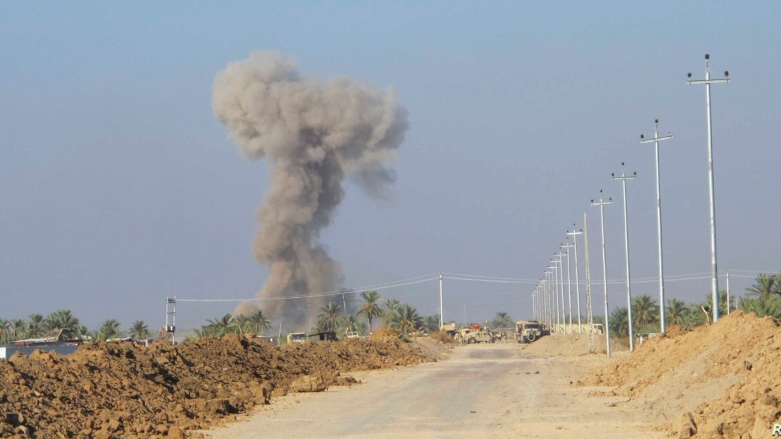US, Iraq deny involvement in explosions south of Baghdad
Arab media outlets claimed airstrikes had targeted the Iran-backed Kataib Hizbollah militias in the Jurf al-Sakhar region.

ERBIL (Kurdistan 24) – The US Central Command (CENTCOM), the US Embassy in Baghdad, and the Iraqi military denied reports on Tuesday that any airstrikes were carried out south of Baghdad in Jurf al-Sakhar the previous night.
“Explosions reported earlier today about 40 miles outside of Baghdad, Iraq, in the town of Jurf al-Sakhar were not the result of US military action,” Capt. Bill Urban, CENTCOM spokesman, said in a tweet.
"Explosions reported earlier today about 40 miles outside of Baghdad, Iraq,
— U.S. Central Command (@CENTCOM) January 19, 2021
in the town of Jurf Sakhar were not the result of U.S. military action." --
CAPT Bill Urban, U.S. Central Command spokesman.
The US Embassy in Baghdad also posted a statement on Twitter on Tuesday confirming “that no US personnel or assets were in the vicinity of Jurf as-Sakhar and that there was no US involvement in this alleged incident.”
We are seeing reports of potential explosions near Jurf as-Sakhr, south of Baghdad. We can confirm that no U.S. personnel or assets were in the vicinity of Jurf as-Sakhr and that there was no U.S. involvement in this alleged incident. --Embassy Spokesperson
— U.S. Embassy Baghdad (@USEmbBaghdad) January 19, 2021
Earlier, Arab media outlets claimed airstrikes had targeted the Iran-backed Kataib Hizbollah militias in the Jurf al-Sakhar region. The Iranian-backed group has a presence in southern Baghdad.
However, Iraq’s Security Media Cell said a number of power pylons in northern Babylon were “attacked and sabotaged by Da’esh [ISIS] gangs.”
It added that some people had interpreted these explosions as airstrikes and that a security force unit began an operation in the area to find the “elements who carried out this terrorist act.”
The spokesman of the commander-in-chief of the Iraqi forces, Yahya Rasool, blamed social media and other media outlets for incorrectly reporting “that security forces in northern Babel governorate were attacked.”
“While we deny this news, we call on the media and bloggers to be careful in transmitting information and not to broadcast rumors in an attempt to confuse public opinion,” Rasool wrote on Twitter.
There were earlier fears that there could be new violence by Iran-backed groups during the first anniversary of the Jan. 3, 2020, US drone strike in Baghdad that killed Qassim Soleimani, head of the Quds Force of Iran’s Revolutionary Guard, and Abu Mahdi al-Muhandis, the head of Kataib Hizbollah.
The threat of a US response might have deterred Iranian-backed groups from targeting US troops in Iraq. The US warned Iran by deploying the USS Nimitz aircraft carrier, B-52 bombers, and a nuclear submarine in the region.
Read More: Pentagon reverses stand on aircraft carrier: ordered to remain in Middle East
Editing by Karzan Sulaivany